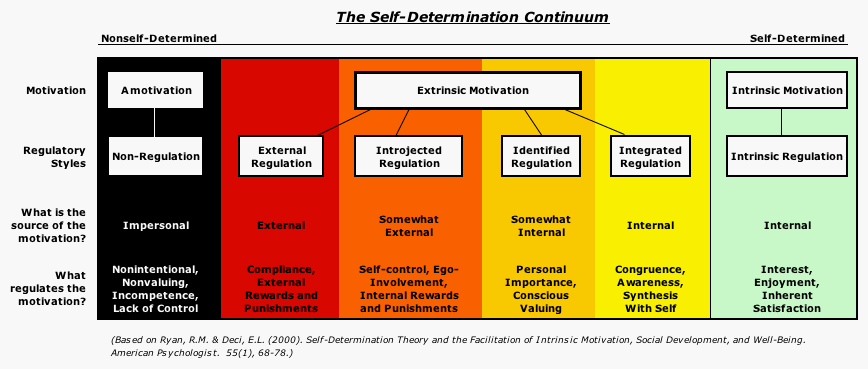 If we think about the reasons why people engage in different activities, devote their time and effort to these activities, and persist in doing what they do despite various difficulties and challenges, one central concept that comes to mind is motivation. Indeed, motivation can be seen as a ‘push-button’ that elicits, controls and directs behavior.
If we think about the reasons why people engage in different activities, devote their time and effort to these activities, and persist in doing what they do despite various difficulties and challenges, one central concept that comes to mind is motivation. Indeed, motivation can be seen as a ‘push-button’ that elicits, controls and directs behavior.
Naturally, in the area of global mobility the topic of motivation to expatriate has also been emphasized, discussed and researched. For example, the annual global mobility field surveys (e.g. Brookfield, Cartus) report on the main motivating factors to accept an expatriation, and several academic papers explore the motivation based on empirical data. However, rather than focusing on ‘what’ motivates employees to go abroad, I would like to bring up the questions of ‘how’ do these motives influence behavior, and ‘how’ could one improve the behavior though improved motivation. As such, I would like to focus on a couple of major psychological theories of motivation, which have a great potential for practical implementation.
Is an individual’s behavior self-determined?
The Self-Determination Theory (SDT) is a major theory of human motivation, which posits that the degree of self-determination in relation to one’s behavior is of great importance for one’s performance and satisfaction.
Specifically, SDT differentiates three types of motivation, which constitute a continuum that starts with intrinsic motivation (interest in the activity solely for itself), follows with extrinsic motivation (motives are related to outcomes of activity), and finishes with amotivation (lack of any motivation for certain behavior).
According to the theory, intrinsic motivation is ideal because people engage in an activity for internal reasons, such as a pleasant sensation and satisfaction experienced from learning, growth and an accomplishment. Given that intrinsic motivation sustains activity for its own reasons, this type of motivation is found to be the longest lasting and strongest in light of environmental adversity. Moreover, this type of motivation is considered to be self-determined, hence influenced by external factors to a lesser degree. As such, intrinsic motivation is found to be linked to better performance, persistence, and overall satisfaction with an activity.
In contrast, extrinsic motivation is less self-determined, as it is driven by external forces, such as benefits, valued outcomes, or social pressure. Even though extrinsic motives can be personally important for an individual, and hence reflect the desire to engage in an activity, it is a less preferred state than intrinsic motivation because it induces feelings of obligation (e.g. going to work to sustain income).
Fianly, amotivation, as a state of lack of any good enough reasons to continue a given behavior, is related to low performance and dissatisfaction, and hence usually leads to giving up on the activity.
Putting it into the context of expatriation, we may argue that if an assignee is motivated to go abroad for reasons of personal enjoyment and satisfaction (e.g. enjoyment of cross-cultural settings, adventures), s/he will sustain high motivation levels longer and will be more resilient towards adjustment difficulties than an employee who is motivated to expatriate solely because of benefits and future career prospects. Finally, compelling an unmotivated employee to accept an international assignment is very likely to result in early repatriation or other unfavorable consequences.
So maybe relocation managers should focus on recruiting employees, who seek to expatriate for intrinsic reasons, rather than those, who accept assignments because of the provided benefits?
However, apart from choosing the ones with intrinsic motivation, a relevant question would be to ask what to do with those that are good candidates, although not that intrinsically motivated? Well, the good news is that SDT posits that intrinsic motivation can be developed and supported.
Practical implications
The theory highlights that the degree of self-determination (intrinsic motives) of human behavior is influenced by the degree to which individuals fulfill their basic psychological needs of autonomy, competence and relatedness.
Autonomy is defined as freedom of choice. In terms of relocation management programs the need for autonomy could be fulfilled by providing higher diversity and flexibility of mobility programs, as well as higher responsibility, independence, and less control in terms of the expatriate’s activity on site.
Competence needs relate to the desire to feel effective in fulfilling a certain task. Practically this could mean that relocation professionals should pay attention to matching assignee skills and competencies with the assignment needs and goals. Moreover, positive feedback on a task is found to satisfy the competence need, thus increasing intrinsic motivation to do it further. Naturally, feedback should be closely linked to productive goal setting and valid (and regular) performance appraisals.
Finally, relatedness is defined as the need to feel connected to others. This need can be addressed in many different ways, such as mentoring programs, employee integration and socialization activities, and sustained relationships with home- and host-location employees. Generally, relocation professionals may target this need when working on supporting employees throughout the adjustment process, and making sure assignees feel valued, integrated and accepted in the host location.
Motivated by needs or motivated by goals?
Apart from exploring motivation through the lens of one’s needs, we may also look at it through one’s goals. Naturally, setting goals is a powerful way to enact and direct behavior, especially in such an achievement-oriented environment as the workplace. As an alternative and complementary view to SDT, the Achievement Goal Theory focuses on the differences of motivation as a result of differences in the goals one pursues in an achievement situation. I will review this theory and its practical implications more closely in my next week’s post.
Further reading:
Deci, E.L., & Ryan, R.M. (2000). The ‘what’ and ‘why’ of goal pursuits: Human needs and self-determination of behavior. Psychology of Inquiry, 11, 227-268



Hi. Is it an article? Im studying on expatriate motivation and intercultural communication competence. Please help me about this issue. Best wishes,
Thanks for the great content…
I’ve a poster of Walt Disney stick on the wall of my room which constantly helped me to remain motivated. And the word goes:
“All the adversity I’ve had in my life, all my troubles and obstacles, have strengthened me…. You may not realize it when it happens, but a kick in the teeth may be the best thing in the world for you.”
Yeah! I’m cent percent agree that when we complete any goal, we feel satisfied and more motivated.
🙂 🙂 🙂 🙂
Again, thanks for this post.. 🙂